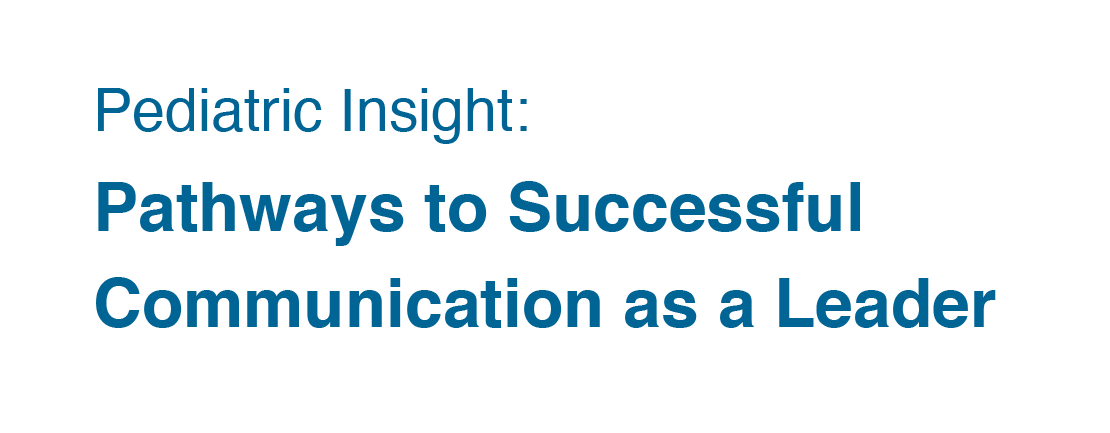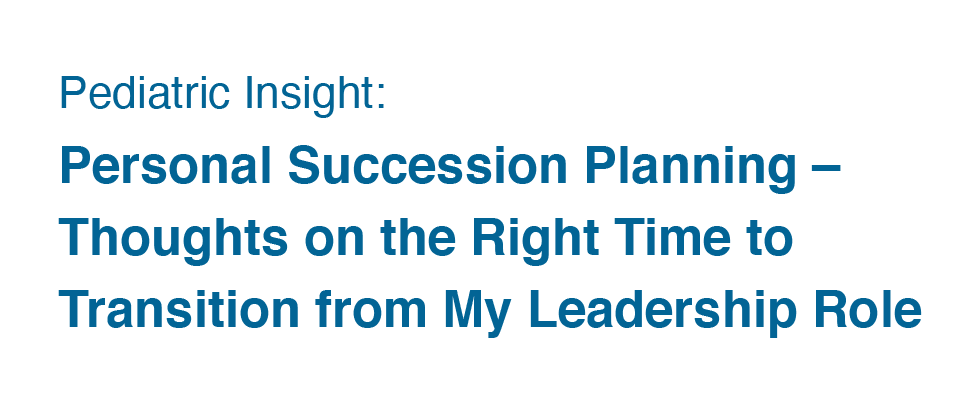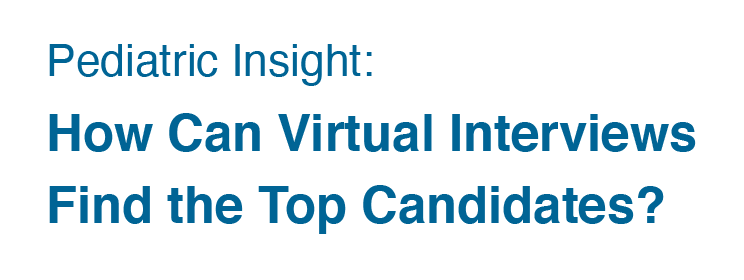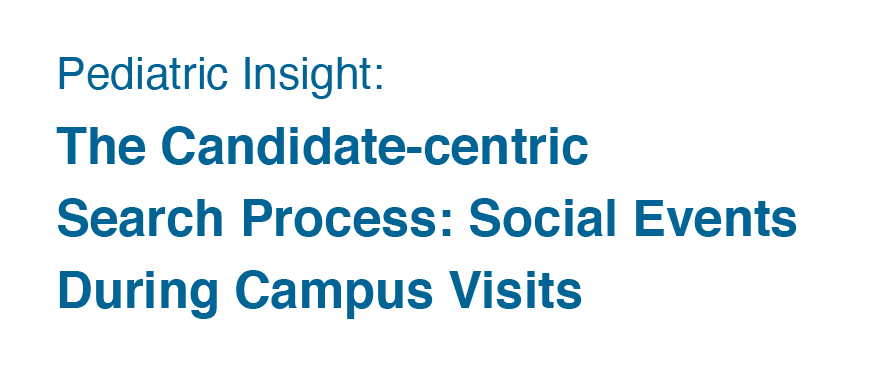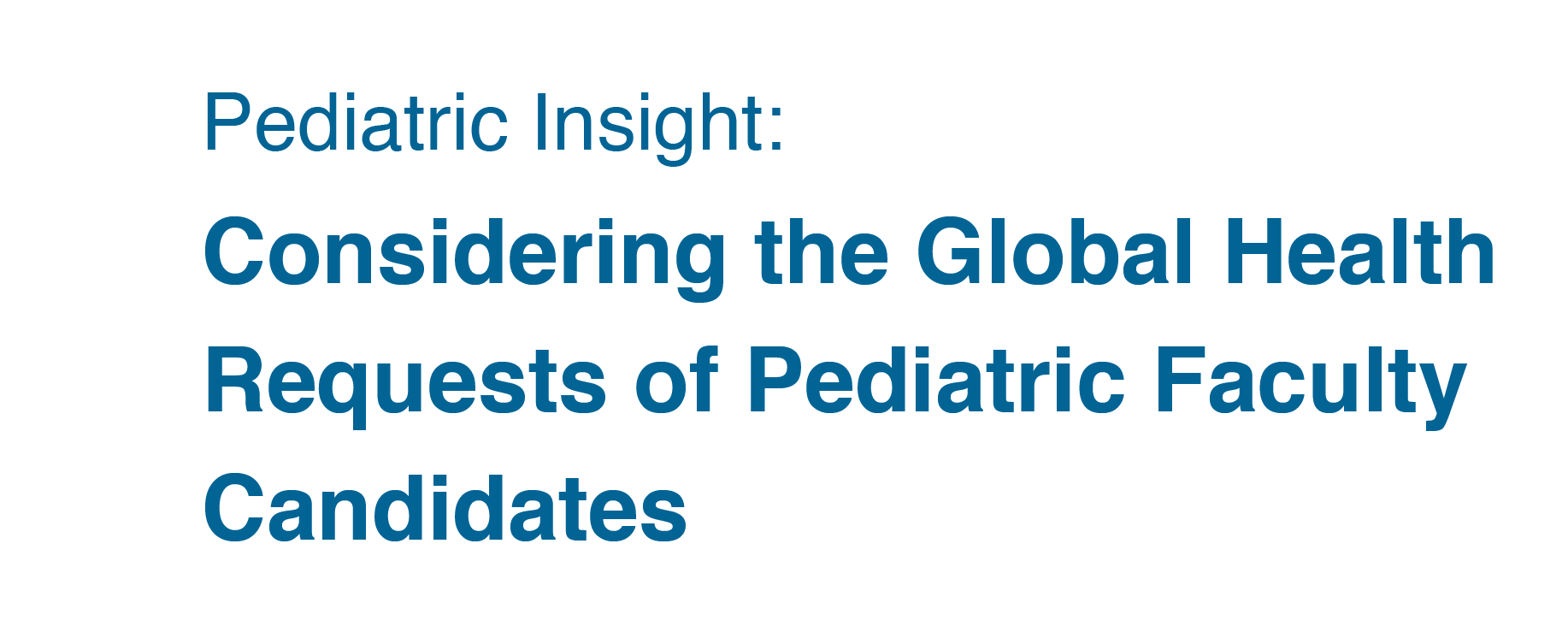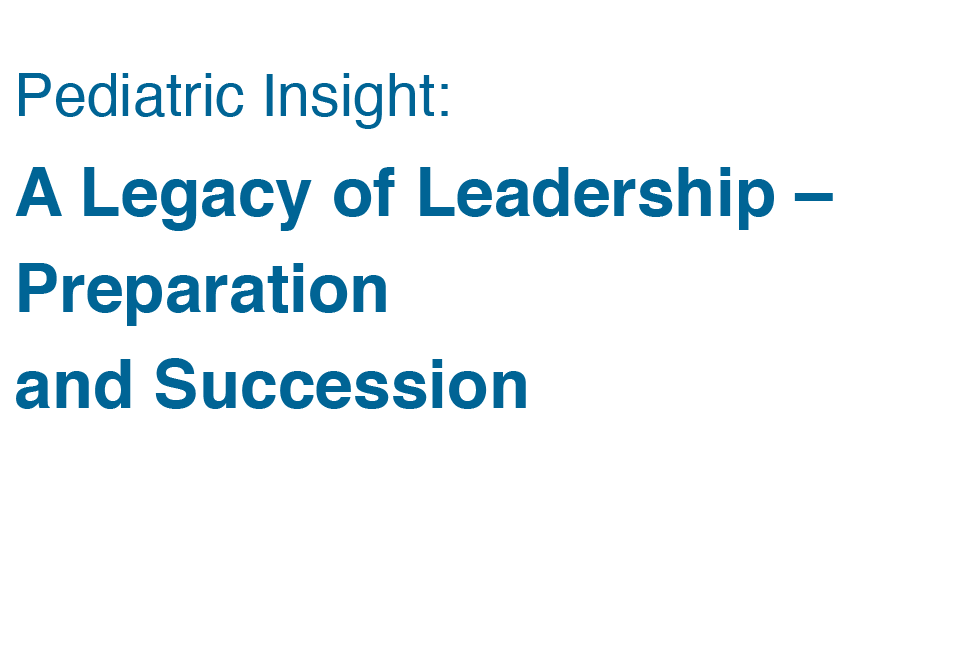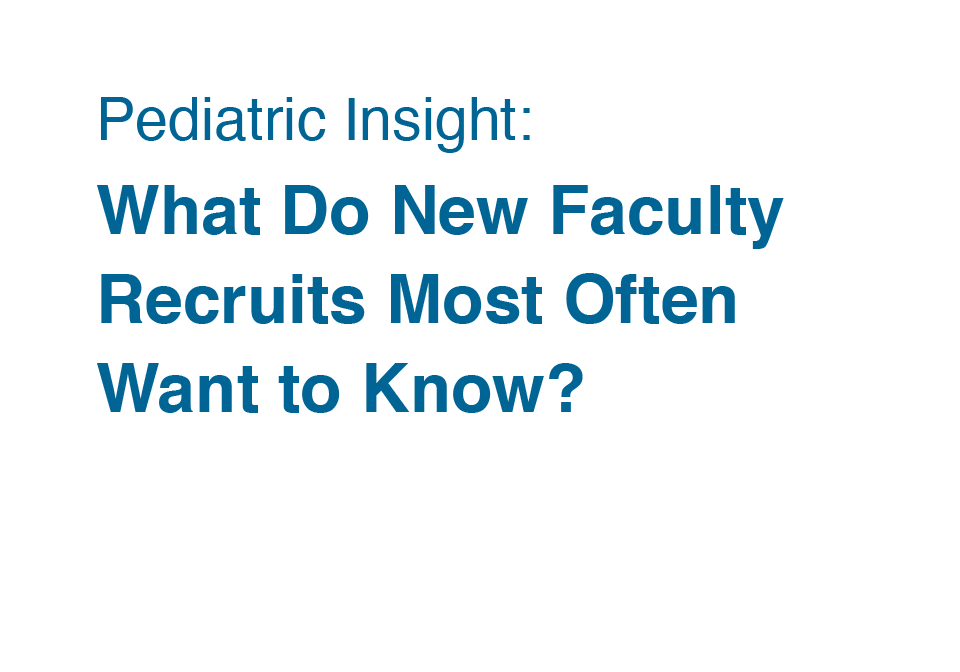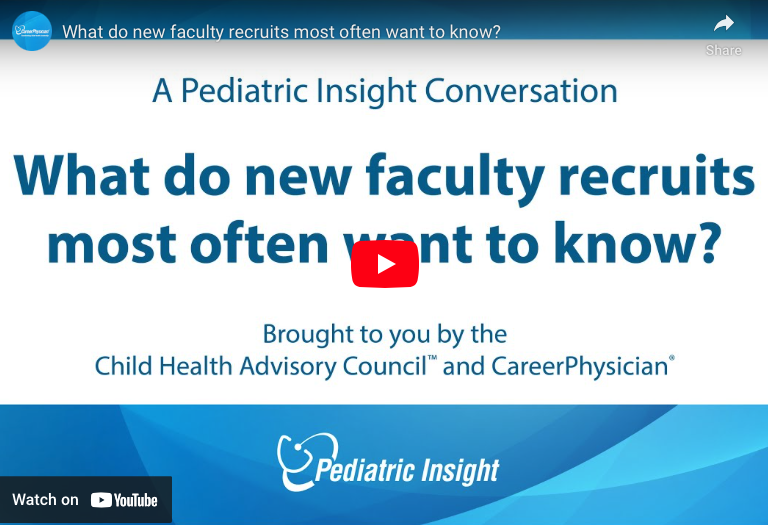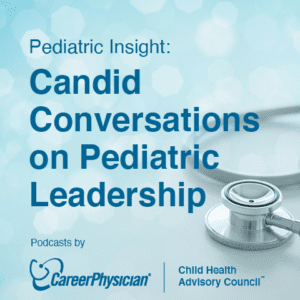
Duration: 00:17:53
How should you adapt your communication style to fit your team?
Successful communication is about listening, being open and maintaining confidentiality, according to Dr. Arnie Strauss.
Listen to the Child Health Advisory Council members discuss their experiences and learn how to build trust with your teams using the communication tactics that matter most.
Subscribe: Apple Podcasts | Spotify
Watch the Conversation.
Topic Resources.
Communication for Successful Leadership, Craig Hillemeier, MD
Essential Communication Skills for Leaders, Center for Creative Leadership, August 2024.
How to Speak So that People Want to Listen, Julian Treasure, TEDGlobal, June 2013.
Why Communication is Essential to Effective Leadership, Penn LPS Online. August 2023.
Meet the Panel.
HOST
A national expert in solutions for solving complex faculty leadership and subspecialty talent challenges.
Wesley D. Millican, MBA
CEO and Physician Talent Officer
Emeritus CEO, Penn State Health; Emeritus Dean and Professor of Pediatrics at Penn State University. Read more.
Craig Hillemeier, MD
Pediatric Gastroenterologist
Professor Emeritus and Chair Emeritus at the University of Washington School of Medicine. Read more.
Bruder Stapleton, MD
Pediatric Nephrologist
Professor of Pediatrics at the University of Michigan School of Medicine and C.S. Mott Children’s Hospital. Read more.
Valerie Opipari, MD
Pediatric
Hematologist/Oncologist
Professor and Chair Emeritus of Pediatrics at Virginia Commonwealth University (VCU). Read more.
Bruce Rubin, MEngr, MD, MBA, FRCPC
Pediatric Pulmonologist
Emeritus Professor and Surgeon in Chief at Seattle Children’s Hospital and the University of Washington. Read more.
Robert Sawin, MD
Pediatric Surgeon
Emeritus Professor and Chair of Pediatrics, University of Cincinnati College of Medicine and Cincinnati Children’s Hospital Medical Center. Read more.
Arnold (Arnie) Strauss, MD
Pediatric Cardiologist
Have a question or a topic you’d like us to discuss? Send us an email.
Listen to the Podcast.

Duration: 00:20:59
Subscribe: Apple Podcasts | Spotify
Meet the Panel.
HOST
A national expert in solutions for solving complex faculty leadership and subspecialty talent challenges.
Wesley D. Millican, MBA
CEO and Physician Talent Officer
Emeritus CEO, Penn State Health; Emeritus Dean and Professor of Pediatrics at Penn State University. Read more.
Craig Hillemeier, MD
Pediatric Gastroenterologist
Professor Emerita of Pediatrics, University of Washington School of Medicine. Read more.
Christine Gleason, MD
Neonatologist
Professor of Pediatrics at the University of Michigan School of Medicine and C.S. Mott Children’s Hospital. Read more.
Valerie Opipari, MD
Pediatric Hematologist/Oncologist
Emeritus Professor and Surgeon in Chief at Seattle Children’s Hospital and the University of Washington. Read more.
Robert Sawin, MD
Pediatric Surgeon
Professor Emeritus and Chair Emeritus at the University of Washington School of Medicine. Read more.
Bruder Stapleton, MD
Pediatric Nephrologist
Emeritus Professor and Chair of Pediatrics, University of Cincinnati College of Medicine and Cincinnati Children’s Hospital Medical Center. Read more.
Arnold (Arnie) Strauss, MD
Pediatric Cardiologist
Have a question or a topic you’d like us to discuss? Send us an email.
Listen to the Podcast.

Duration: 00:24:19
- Best practices for virtual hiring for candidates and interviewers
- Common pitfalls to avoid
- How to build a strong team from anywhere
Subscribe: Apple Podcasts | Spotify
Watch the Conversation.
Meet the Panel.
HOST
A national expert in solutions for solving complex faculty leadership and subspecialty talent challenges.
Wesley D. Millican, MBA
CEO and Physician Talent Officer
Professor Emeritus and Chair Emeritus at the University of Washington School of Medicine. Read more.
Bruder Stapleton, MD
Pediatric Nephrologist
Professor of Pediatrics at the University of Michigan School of Medicine and C.S. Mott Children’s Hospital. Read more.
Valerie Opipari, MD
Pediatric Hematologist/Oncologist
Emeritus Professor and Chair of Pediatrics, University of Cincinnati College of Medicine and Cincinnati Children’s Hospital Medical Center. Read more.
Arnold (Arnie) Strauss, MD
Pediatric Cardiologist
Professor and Chair Emeritus of Pediatrics at Virginia Commonwealth University (VCU).
Read more.
Bruce Rubin, MEngr, MD, MBA, FRCPC
Pediatric Pulmonologist
President and Professor Emerita of SUNY Upstate Medical University. Read more.
Danielle Laraque-Arena, MD, FAAP
Child Abuse Pediatrics
Emeritus Professor and Surgeon in Chief at Seattle Children’s Hospital and the University of Washington. Read more.
Robert Sawin, MD
Pediatric Surgeon
Emeritus CEO, Penn State Health; Emeritus Dean and Professor of Pediatrics at Penn State University. Read more.
Craig Hillemeier, MD
Pediatric Gastroenterologist
Have a question or a topic you’d like us to discuss? Send us an email.
Listen to the Podcast.

Duration: 00:24:10
During the recruitment process, social events during campus visits are critical in assessing candidate engagement, executive presence and general connectivity with your faculty and leaders. Planned social engagement opportunities allow candidates to better appreciate your culture and to develop the chemistry and sense of belonging that will be key in your efforts to successfully recruit them. In this podcast moderated by Christine Gleason, MD, the Child Health Advisory Council (CHAC) discusses social recruitment strategies that ensure outstanding candidate experiences. They delve into the delicate balance of social issues such as who to invite, having wine at dinner and other appropriate questions that maximize social engagement.
Subscribe: Apple Podcasts | Spotify
Watch the Conversation.
Meet the Panel.
HOST
A national expert in solutions for solving complex faculty leadership and subspecialty talent challenges.
Wesley D. Millican, MBA
CEO and Physician Talent Officer
Professor Emerita of Pediatrics, University of Washington School of Medicine
Read more.
Christine Gleason, MD
Neonatologist
Professor of Pediatrics at the University of Michigan School of Medicine and C.S. Mott Children’s Hospital. Read more.
Valerie Opipari, MD
Pediatric Hematologist/Oncologist
Emeritus Professor and Chair of Pediatrics, University of Cincinnati College of Medicine and Cincinnati Children’s Hospital Medical Center. Read more.
Arnold (Arnie) Strauss, MD
Pediatric Cardiologist
Professor Emeritus and Chair Emeritus at the University of Washington School of Medicine. Read more.
Bruder Stapleton, MD
Pediatric Nephrologist
President and Professor Emerita of SUNY Upstate Medical University. Read more.
Danielle Laraque-Arena, MD, FAAP
Child Abuse Pediatrics
Emeritus Professor and Surgeon in Chief at Seattle Children’s Hospital and the University of Washington. Read more.
Robert Sawin, MD
Pediatric Surgeon
Emeritus CEO, Penn State Health; Emeritus Dean and Professor of Pediatrics at Penn State University. Read more.
Craig Hillemeier, MD
Pediatric Gastroenterologist
Have a question or a topic you’d like us to discuss? Send us an email.
Listen to the Podcast.

Duration: 00:28:36
Our latest Pediatric Insight is an insightful discussion on global health initiatives with special guest, Amelie von Saint Andre-von Arnim, MD, UW/Seattle Children’s Director, Pediatric Emergency Medicine and Critical Care – Kenya. Dr. von Saint Andre-von Arnim and the Child Health Advisory Council discuss the realities and benefits of supporting candidates’ desires to share knowledge, research and patient care experiences across the globe. Moderated by Dr. Bruce Rubin, who has supported pediatric care delivery in Ukraine during the conflict, the council brings a unique perspective on the ROI of international health exchanges and programs.
Subscribe: Apple Podcasts | Spotify
Watch the Conversation.
Meet the Panel.
HOST
A national expert in solutions for solving complex faculty leadership and subspecialty talent challenges.
Wesley D. Millican, MBA
CEO and Physician Talent Officer
Professor and Chair Emeritus of Pediatrics at Virginia Commonwealth University (VCU). Read more.
Bruce Rubin, MEngr, MD, MBA, FRCPC
Pediatric Pulmonologist
Attending Physician, Seattle Children’s Hospital and Associate Professor of Pediatrics, University of Washington School of Medicine
Amelie von Saint Andre-von Arnim, MD
Attending Physician, Seattle Children’s Hospital
Professor of Pediatrics at the University of Michigan School of Medicine and C.S. Mott Children’s Hospital. Read more.
Valerie Opipari, MD
Pediatric Hematologist/Oncologist
Emeritus Professor and Chair of Pediatrics, University of Cincinnati College of Medicine and Cincinnati Children’s Hospital Medical Center. Read more.
Arnold (Arnie) Strauss, MD
Pediatric Cardiologist
Professor Emeritus and Chair Emeritus at the University of Washington School of Medicine. Read more.
Bruder Stapleton, MD
Pediatric Nephrologist
President and Professor Emerita of SUNY Upstate Medical University. Read more.
Danielle Laraque-Arena, MD, FAAP
Child Abuse Pediatrics
Emeritus Professor and Surgeon in Chief at Seattle Children’s Hospital and the University of Washington. Read more.
Robert Sawin, MD
Pediatric Surgeon
Emeritus CEO, Penn State Health; Emeritus Dean and Professor of Pediatrics at Penn State University. Read more.
Craig Hillemeier, MD
Pediatric Gastroenterologist
Have a question or a topic you’d like us to discuss? Send us an email.
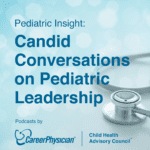
Considering the Global Health Requests of Pediatric Faculty Candidates
Our latest Pediatric Insight is an insightful discussion on global health initiatives with special guest, Amelie von Saint Andre-von Arnim, MD, UW/Seattle Children’s Director, Pediatric Emergency Medicine and Critical Care – Kenya. Dr. von Saint Andre-von Arnim and the Child Health Advisory Council discuss the realities and benefits of supporting candidates’ desires to share knowledge, research and patient care experiences across the globe. Moderated by Dr. Bruce Rubin, who has supported pediatric care delivery in Ukraine during the conflict, the council brings a unique perspective on the ROI of international health exchanges and programs.
Moderator: Bruce Rubin, MEngr, MD, MBA, FRCPC
Guest contributor: Amelie von Saint Andre-von Arnim, MD
Associate Professor, Department of Pediatrics, Division of Pediatric Critical Care, University of Washington/ Seattle Children’s and University of Washington, Director, Pediatric Emergency and Critical Care, Kenya and Seattle, WA, USA
Child Health Advisory Council members on the panel: Valerie Opipari, MD; Arnold (Arnie) Strauss, MD; F. Bruder Stapleton, MD; Danielle Laraque-Arena, MD; Robert Sawin, MD and Craig Hillemeier, MD
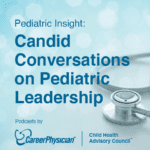
The Child Health Advisory Council discusses how department and division leaders think about succession planning and best practices for preparing the next generation of leaders. Read More
Listen to the Podcast.

Duration: 00:26:42
Succession planning is a critical factor in the long-term success of an academic health department. The Child Health Advisory Council (CHAC) explores this topic from several different viewpoints including internal and external approaches to ensuring you have the right team members in place. As you’ll hear in this latest discussion, succession planning begins once you take on a new role and mentoring your team, maintaining relationships outside of your organization and considering the legacy you want to leave behind.
Subscribe: Apple Podcasts | Spotify
Watch the Conversation.
Meet the Panel.
HOST
A national expert in solutions for solving complex faculty leadership and subspecialty talent challenges.
Wesley D. Millican, MBA
CEO and Physician Talent Officer
Professor Emeritus and Chair Emeritus at the University of Washington School of Medicine. Read more.
Bruder Stapleton, MD
Pediatric Nephrologist
Professor of Pediatrics at the University of Michigan School of Medicine and C.S. Mott Children’s Hospital. Read more.
Valerie Opipari, MD
Pediatric Hematologist/Oncologist
Emeritus Professor and Surgeon in Chief at Seattle Children’s Hospital and the University of Washington. Read more.
Robert Sawin, MD
Pediatric Surgeon
President and Professor Emerita of SUNY Upstate Medical University. Read more.
Danielle Laraque-Arena, MD, FAAP
Child Abuse Pediatrics
Emeritus CEO, Penn State Health; Emeritus Dean and Professor of Pediatrics at Penn State University. Read more.
Craig Hillemeier, MD
Pediatric Gastroenterologist
Emeritus Professor and Chair of Pediatrics, University of Cincinnati College of Medicine and Cincinnati Children’s Hospital Medical Center. Read more.
Arnold (Arnie) Strauss, MD
Pediatric Cardiologist
Professor and Chair Emeritus of Pediatrics at Virginia Commonwealth University (VCU). Read more.
Bruce Rubin, MEngr, MD, MBA, FRCPC
Pediatric Pulmonologist
Professor Emerita of Pediatrics at the University of Washington School of Medicine. Read more.
Christine Gleason, MD
Neonatologist
Professor and Chair Emerita at Howard University College of Medicine in Washington, D.C. Read more.
Renée Jenkins, MD, FAAP
Adolescent Medicine Physician
Have a question or a topic you’d like us to discuss? Send us an email.
Listen to the Podcast.

Duration: 00:26:42
What are the key questions academic leaders receive from faculty recruits and how should they respond? In the latest Child Health Advisory Council (CHAC) discussion, members share the top questions they received throughout their careers and how they handled them to ensure the recruit’s concerns were addressed. From career growth opportunities to dedicated research time to personal considerations, they’ve heard it all.
Subscribe: Apple Podcasts | Spotify
Watch the Conversation.
Meet the Panel.
HOST
A national expert in solutions for solving complex faculty leadership and subspecialty talent challenges.
Wesley D. Millican, MBA
CEO and Physician Talent Officer
Professor Emeritus and Chair Emeritus at the University of Washington School of Medicine. Read more.
Bruder Stapleton, MD
Pediatric Nephrologist
Professor of Pediatrics at the University of Michigan School of Medicine and C.S. Mott Children’s Hospital. Read more.
Valerie Opipari, MD
Pediatric Hematologist/Oncologist
Emeritus Professor and Surgeon in Chief at Seattle Children’s Hospital and the University of Washington. Read more.
Robert Sawin, MD
Pediatric Surgeon
President and Professor Emerita of SUNY Upstate Medical University. Read more.
Danielle Laraque-Arena, MD, FAAP
Child Abuse Pediatrics
Emeritus CEO, Penn State Health; Emeritus Dean and Professor of Pediatrics at Penn State University. Read more.
Craig Hillemeier, MD
Pediatric Gastroenterologist
Emeritus Professor and Chair of Pediatrics, University of Cincinnati College of Medicine and Cincinnati Children’s Hospital Medical Center. Read more.
Arnold (Arnie) Strauss, MD
Pediatric Cardiologist
Professor and Chair Emeritus of Pediatrics at Virginia Commonwealth University (VCU). Read more.
Bruce Rubin, MEngr, MD, MBA, FRCPC
Pediatric Pulmonologist
Professor Emerita of Pediatrics at the University of Washington School of Medicine. Read more.
Christine Gleason, MD
Neonatologist
Professor and Chair Emerita at Howard University College of Medicine in Washington, D.C. Read more.
Renée Jenkins, MD, FAAP
Adolescent Medicine Physician
Have a question or a topic you’d like us to discuss? Send us an email.

What are the key questions academic leaders receive from faculty recruits and how should they respond? In the latest Child Health Advisory Council (CHAC) discussion, members share the top questions they received throughout their careers and how they handled them to ensure the recruit’s concerns were addressed. From career growth opportunities to dedicated research time to personal considerations, they’ve heard it all. Read More
Moderator: Bruder Stapleton, MD
Panel: Danielle Laraque-Arena, MD, Robert Sawin, MD, Arnold Strauss, MD, Christine Gleason, MD, Bruce Rubin, MD, and Craig Hillemeier, MD
